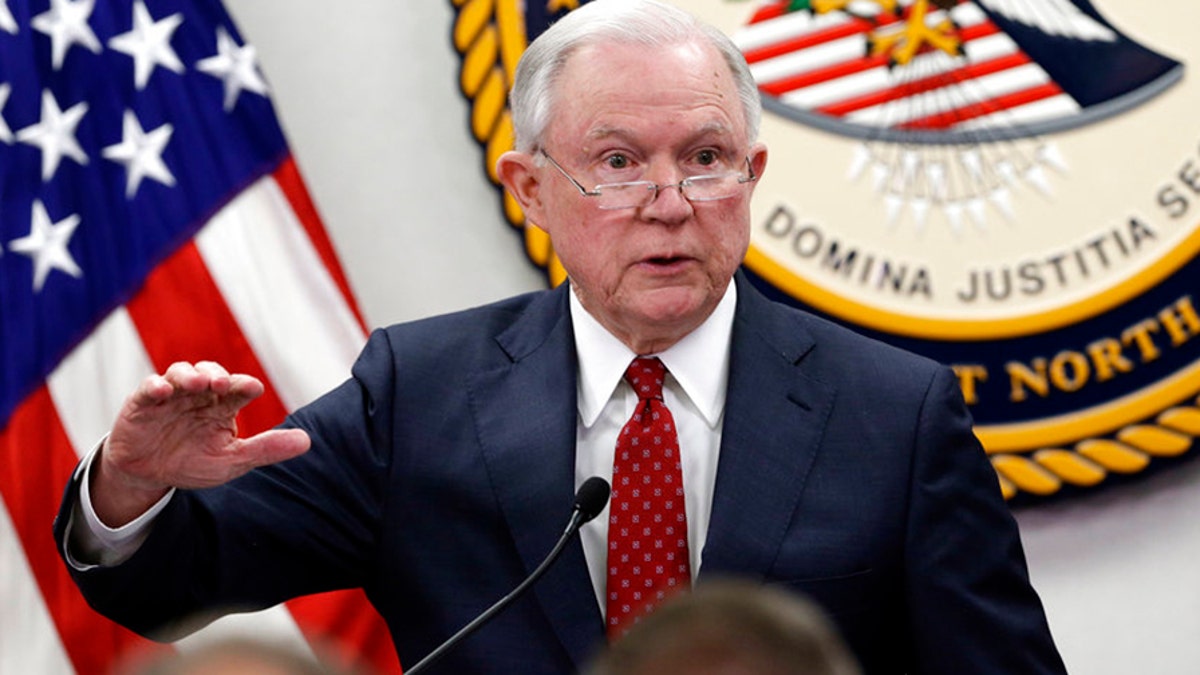
Attorney General Jeff Sessions reportedly told the White House he may quit if Trump fires Deputy AG Rod Rosenstein. (AP)
Our Founders recognized that religion and religious people play a key role in strengthening our society. They feed the hungry, heal the sick, and comfort the grieving. They teach right behavior and give meaning to life. They are present at birth and at death.
That’s why the Founders gave the public expression of religious belief a triple protection in our Constitution by protecting the “free exercise” of religion—not just worship in secret—banning an established religion, and ensuring the freedom of speech.
Under President Donald Trump, the federal government is affirming these protections and the contribution that religious individuals make to this country.
Since his election, President Trump has been an unwavering defender of religious liberty. He has promised that under a Trump administration, “the federal government will never, ever penalize any person for their protected religious beliefs.”
At the Department of Justice, we are taking these fundamental principles seriously, and we are putting them into action.
For example, our Solicitor General argued before the Supreme Court in support of the Colorado baker who was sued for refusing to bake a cake for a same-sex wedding. Earlier this month, the Court ruled in favor of the baker, 7 to 2.
Since it was enacted in 2000, RLUIPA has helped us defend many religious groups across the nation. It has enabled us to protect Orthodox Jews in New York, Muslims in Minnesota, Greek Orthodox Christians in Wisconsin, and many others.
We have settled 24 civil cases with approximately 90 plaintiffs regarding the previous administration’s wrongful application of the contraception mandate to objecting religious employers. Last month, a district court in Colorado issued a permanent injunction in the case involving the Little Sisters of the Poor, a group of nuns who serve the elderly poor. Because this injunction is permanent, the government can never again violate the Little Sisters’ rights in this way. These cases should never have been necessary in the first place. Religious groups should not have to go to the courts to protect their rights.
Soon after he took office, President Trump directed me to issue legal guidance for all executive agencies about how to apply the religious liberty protections in federal law. I issued that guidance in October, and it makes clear that religious exercise is not just some policy preference: it is an inalienable right.
The guidance reiterates that our government may not discriminate against or between religious groups.
For example, religious organizations must be on equal footing with one another and with secular organizations when it comes to government grant funding.
That’s why, in January, we filed a brief in a Montana court to defend parents who claim that the state discriminated against their children by barring them from a private school scholarship program because they attend a religious school.
Religious schools and other institutions must also be on equal footing with one another and with secular institutions when it comes to zoning laws.
It is not enough to say people have freedom of worship but not the freedom to buy land, build a church, or expand the property they already have. For freedom of religion to be real, people need a proper space where they can worship, pray, or preach.
When I was in the Senate, we passed a law called the Religious Land Use and Institutionalized Persons Act (RLUIPA), which prevents cities and towns from discriminating against religious organizations in land use and zoning decisions. RLUIPA lets the Justice Department step in when churches, synagogues, mosques, or religious schools are treated differently from other public spaces.
Since it was enacted in 2000, RLUIPA has helped us defend many religious groups across the nation. It has enabled us to protect Orthodox Jews in New York, Muslims in Minnesota, Greek Orthodox Christians in Wisconsin, and many others.
Last week, I announced a new initiative to help us carry out RLUIPA. It’s called the Place to Worship Initiative. Under this initiative, the Department of Justice will seek to raise awareness about RLUIPA through public events across America and through better training for local officials and our federal prosecutors. These efforts will help us bring more RLUIPA cases—and it will help us win them. I also hope that if more people know their rights—and if more public officials know what the law requires—more cities and towns across America will accommodate people of faith without the involvement of the Justice Department.
Our Founders reserved a space for people of faith in the first lines of the First Amendment. Under President Trump’s strong leadership, this Department of Justice is ensuring that people of faith can find have a fair shot at finding space in every town and every city in America.








































